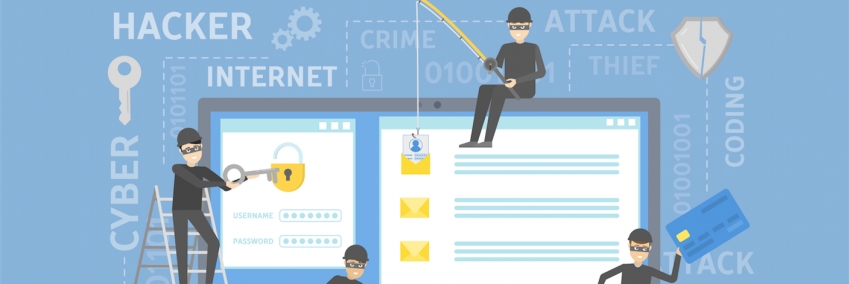Gift cards, secret shoppers and fake offers
With many online shopping and rebate programs, it is easy to believe that there are companies that would pay people to become secret shoppers for some type of payment or reward. Unfortunately, this is a trap used frequently by today’s cyber criminals.
With this scam, the “company” will send you a large (counterfeit) check that you are asked to deposit and use to buy gift cards for your secret shopping. And, you will even get to keep commission for your time! Seems too good to be true? It is!
Once you purchase those gift cards, the secret shopping “company” will ask you to send them pictures of the gift cards (front and back) to prove the purchase at which point they will take the information and spend them before the counterfeit check bounces.
Implication for you? The bounced check and all associated damages are your responsibility because the criminal is completely insulated and will be unreachable by the time you realize what happened. In other words, you will be left holding the bag.
Want to get rich or lose weight? You aren’t alone, and cyber criminals know exactly what you want to hear.
Like most people, you may long to get more money, get more fit, etc. Unfortunately, today’s criminals have resurrected an old, proven scam. Unbeknownst to you, that email you received about that “self-improvement” program you think will be the answer this time is a scam. When you sign up, you are handing over all of your personal and credit card information to a cyber thief. And that recurring monthly fee you agreed to? Good luck stopping it. Suddenly you will realize that there is no phone number or customer service to cancel, and you feel stuck.
Implication for you: That monthly payment will be nearly impossible to cancel, and chances are, your credit card information will be used for identity theft and fraudulent charges.
Counterfeit money orders
While money orders used to be a way to safe proof transactions with strangers, that’s no longer the case. These days, fake money orders are used to make purchases from things like Facebook Marketplace and Craigslist. The challenge is that these counterfeiters are good and fake money orders are hard to distinguish from the real deal.
Implication for you: If you have any reason to believe that you are holding a fake money order, call the U.S. Postal Service verification line at 1-866-459- 7822. The U.S. Postal Service can verify the authenticity of money orders 48 hours after they are issued. They can also provide you with great tips on how to recognize fake money orders in the future.
Computer Viruses
This is a scam that we have seen all too frequently, and the worst part is that it targets unsuspecting elderly. A cyber criminal calls an unsuspecting consumer and warns that his or her PC – however seldom used – is infested with viruses. The very convincing and empathic thief will then offer to assist, directing the victim to a local store to buy prepaid gift cards which are given as payment for the tech support services. The same scam is also executed using email and pop-up windows on your web browser.
Implication for you: Victims can end up losing a lot of money – sometimes even into the thousands. These thieves have no conscience and will leave their victims destitute.
Direct Mail Identity Theft
Bogus – but official-looking – letters are delivered every day to random consumers with stern requests for social security numbers and other personally identifiable information.
Some of these letters are printed on what looks like big bank letterhead, and in all cases, there is at least one “official looking” hard-copy form that the consumer is asked to fill out and return.
Implication for you: Be extremely wary of any letter that asks you to submit important information via the mail. Reputable companies like MACU will never ask you to provide personal information through the mail.
Staying on top of the latest schemes and scams can help you stay protected. For
a more complete list of the techniques being used by today’s criminal, visit www.ic3.gov/crimeschemes.aspx.
